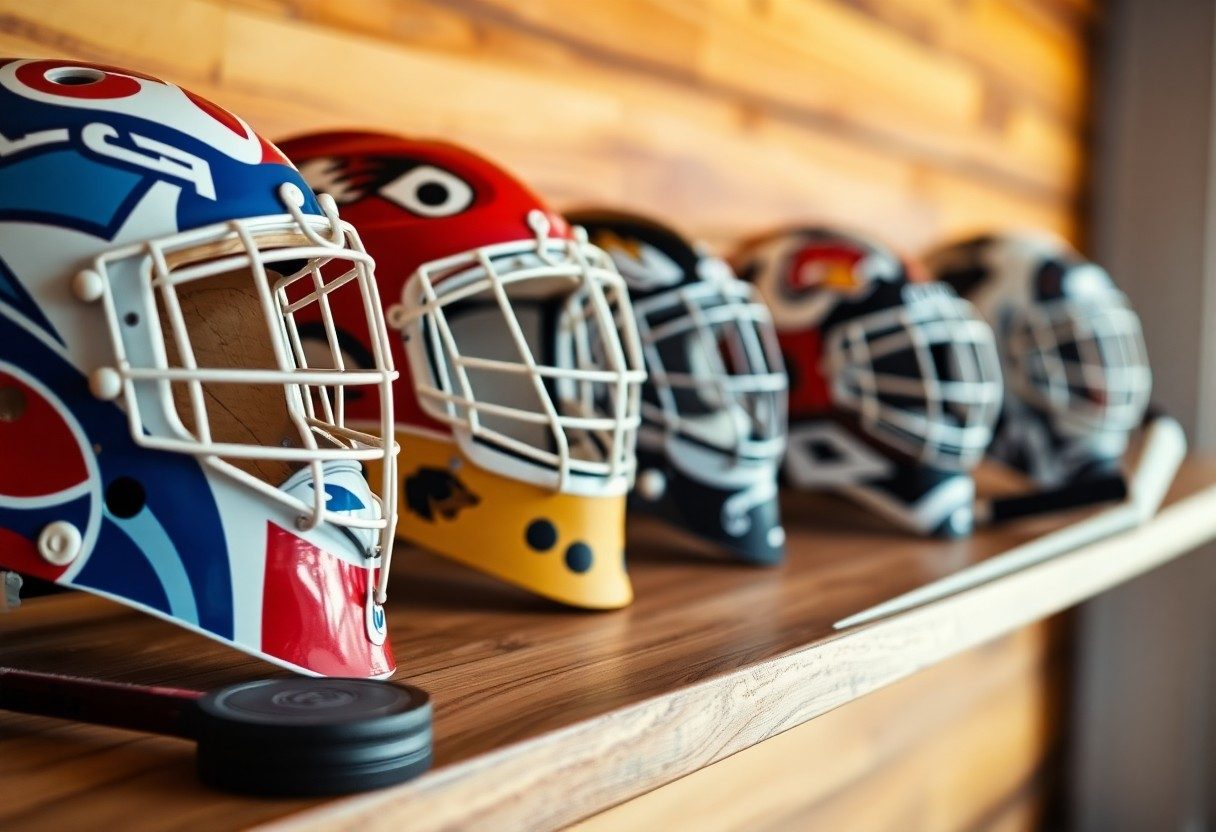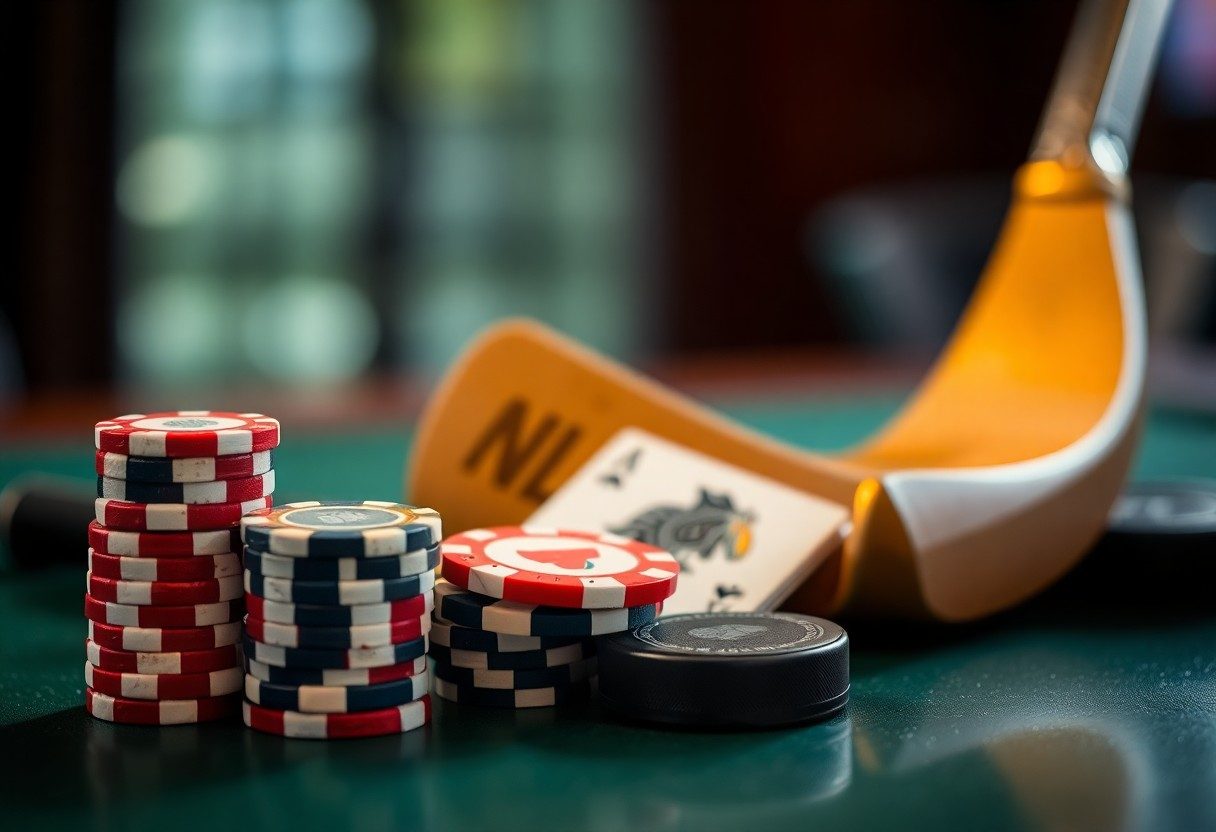Just like many athletes, hockey players often turn to superstitions and rituals to enhance their performance and bring good luck. You might wonder what drives these elite athletes to hold onto peculiar habits, from specific pre-game meals to the way they lace their skates. In this blog post, you’ll explore the fascinating world of hockey superstitions, exploring the personal beliefs and elaborate routines of the game’s most superstitious stars. Get ready to uncover the mindsets that influence their gameplay and definition of success.
The Psychology of Superstitions
While some may dismiss superstitions as mere quirks, they reveal much about the human psyche, especially in high-pressure environments like hockey. Superstitions often serve as coping mechanisms that provide athletes with a sense of control and predictability when facing unpredictable outcomes. By engaging in these rituals, players can reduce anxiety and boost their confidence, firmly believing that their behaviors can influence the game’s outcome.
Understanding Superstitions in Sports
Sports evoke strong emotions and uncertainties, leading many players to adopt rituals that, in their minds, can sway results in their favor. From lucky socks to specific pre-game meals, these beliefs often stem from a desire to make sense of the chaos of competition. By linking their performance to particular actions, players find psychological solace amid the unpredictable nature of sports.
The Role of Routine and Consistency
At the core of many athletes’ superstitions is the need for routine and consistency. Establishing a pre-game ritual can create a familiar framework, allowing you to focus more on your performance rather than potential distractions. This routine often encompasses everything from warm-up exercises to the order of putting on gear, providing a sense of stability and reassurance as you prepare for the game.
But routines can have a deeper psychological impact than merely providing comfort; they can also enhance your performance. Consistency in your actions allows for mental conditioning, helping you to establish a rhythm that can enhance your focus and confidence. By engaging in these familiar behaviors, you condition your mind to associate them with success, which can be pivotal in high-stress situations. As you adhere to your rituals, you may unconsciously sharpen your mental acuity and readiness for competition.
Player Rituals Before Games
Some players have intricate pre-game rituals that help them prepare mentally and physically for the battles on the ice. These routines often include specific clothing choices, meal preferences, and even special music to set the right mood. You might notice that many players have their own unique steps that they follow, all in the name of superstition and focus. Whether it’s stepping onto the ice in a specific order or using the same stick tape pattern, these rituals are a significant part of their game-day preparation.
Pre-Game Warm-Up Routines
For many players, pre-game warm-up routines are as important as the game itself. You’ll often see players engaged in stretching, skating drills, and puck-handling exercises that are tailored to their individual preferences. This time allows you to get in the right mental space, feel the rhythm of your body, and establish a sense of readiness for the game ahead. The warm-up is not just physical; it also serves as an opportunity to solidify their mental game and enhance team chemistry.
Unconventional Superstitions and Their Origins
About some players, their superstitions extend beyond the traditional boundaries, often weaving in quirky or unconventional practices unique to their personalities. You might find that these rituals originate from personal experiences, family traditions, or even random encounters that etched themselves into their pre-game behavior. These can include everything from wearing mismatched socks to ritualistic handshakes with teammates, each adding an extra layer of focus and comfort before stepping onto the ice.
WarmUp routines may also inspire some of the most unconventional superstitions, driven by personal anecdotes or coincidental successes during previous games. You may adopt particular habits, such as always tapping the locker or avoiding cracks in the ice, after recalling a game where those actions coincided with a win. These unique superstitions not only enhance your confidence but also forge a connection to the game, creating a personal mythology that enriches the experience of competing at a high level.
Game Day Rituals
If you’re a hockey player, game day rituals can be vital to your mental preparation and focus. From specific meal choices to warm-up routines, these habits help you get into the right mindset before stepping onto the ice. Many athletes believe that sticking to these rituals can influence their performance, while they also create a sense of familiarity in the otherwise unpredictable atmosphere of a game day. Discovering and perfecting your own game day routine can be a key factor in enhancing your confidence and performance during matches.
Dressing Rituals and Equipment Order
Rituals surrounding how you dress and the order in which you put on your equipment can significantly impact your mindset. Many players follow a strict sequence, often starting with their left skate and progressing to their right, wearing lucky socks, or even putting on specific items in a particular order. This creates a sense of control and ensures you feel ready when it’s time for the puck drop. Customizing your dressing rituals not only helps you feel comfortable but may also serve as a psychological boost as you prepare for the game.
Superstitions from the Locker Room
Before hitting the ice, superstitions can permeate the locker room environment. Many players partake in specific routines, such as listening to particular music tracks, performing a signature handshake with teammates, or even keeping a lucky charm by their equipment. These practices can vary widely, from individual quirks to team-wide traditions, creating a unique bond among players. Engaging in these rituals fosters camaraderie while helping each player maintain focus and confidence as they prepare to compete.
Consequently, these locker room superstitions serve as an necessary aspect of team dynamics and individual preparation. By participating in these rituals, you not only support your personal mindset but also bolster camaraderie among your teammates, reinforcing a shared belief in success. This can create a powerful atmosphere that transcends mere superstition, becoming a vital component of your game day experience. Knowing that you’re all aligned in your beliefs and practices can help you feel more united as a team, ready to face challenges together on the ice.
Superstitions During the Game
Not every player might admit to it, but superstitions often come into play during a hockey game. These rituals can help create a sense of control and calm amid the high stakes of competition, enabling athletes to focus on their performance. Whether it’s the way they lace up their skates or the order in which they take to the ice, these habits reveal the psychological strategies employed by players to enhance their game-day mindset.
On-Ice Superstitions: What Players Do
The rituals players engage in on the ice can be as varied as the players themselves. From specific warm-up routines to distinct stick-taping techniques, each player’s unique approach serves as a way to prepare mentally for the pressure of the game. By repeating these actions, you reinforce a sense of familiarity and comfort, which can be vital amidst the chaos of competition.
The Impact of Fan Interaction on Beliefs
Among the many influences on a player’s superstitions, fan interaction plays a significant role. The energy and enthusiasm of the crowd can create an atmosphere charged with emotion, impacting players’ beliefs and routines. Whether it’s a supportive chant or specific rituals fans might partake in, these moments can mesh with players’ own superstitions, further solidifying their practices during a game.
Players often find themselves drawing strength from fan interaction, integrating the crowd’s energy into their superstitions. Positive reinforcement from fans may lead to the repetition of certain pre-game practices or in-game behaviors. The connection between the player and their supporters can create a sense of unity that enhances your performance, allowing superstitions to become an integral part of both personal and collective team spirit.
Famous Hockey Superstitions
For many players, superstition plays a compelling role in their performance. From donning the same pair of socks through a winning streak to specific pre-game routines, these rituals often provide comfort and a sense of control over the unpredictable nature of the game. As you explore into the world of hockey, you might find these unique customs fascinating and insightful, shedding light on the psyche of your favorite players.
Legendary Players and Their Quirks
Legendary players are often known for their eccentric rituals that set them apart from the competition. Consider how Wayne Gretzky always donned the same pair of shin guards for years, believing they brought him luck. Learning about these quirks can deepen your appreciation for these athletes and their connection to the game, allowing you to explore what drives their incredible accomplishments.
Team-Specific Rituals and Traditions
Any dedicated hockey team has its own set of rituals and traditions that foster camaraderie and focus among players. These team-specific elements often include everything from unique warm-up routines to specific chants during games, designed to boost morale and create a united front on the ice. Understanding these rituals can give you a deeper insight into what motivates players and helps cultivate their team spirit.
Also, observing these traditions allows you to see how teams bond and develop a sense of identity. For example, the Montreal Canadiens famously tap the ‘Centre Bell’ before each home game as a way to invoke good luck. These rituals create psychological advantages, often providing players with the confidence they need to perform under pressure. As you follow the game, pay attention to these traditions, as they contribute significantly to the overall atmosphere and excitement of hockey.
The Perception of Superstitions
All athletes, including hockey players, often navigate a complex world of beliefs and practices that shape their game experience. Superstitions serve as mental anchors, instilling confidence during pressure-packed moments. You might find that these rituals transform routine into sacred practice, fostering a sense of control in a sport filled with unpredictability.
Public and Media Reactions
Perception plays a significant role in how superstitions are viewed by outsiders. You may notice that both fans and media often romanticize these beliefs, portraying players as quirky or eccentric. This fascination can elevate a player’s persona, making you feel more connected to their journey, while sometimes raising discussions about the line between conviction and coincidence.
Balancing Science and Belief
About the relationship between science and superstition, you’ll find that psychological principles often underpin these rituals. Athletes like yourself may engage in such practices to enhance focus and reduce anxiety, creating a mental framework where performance can thrive.
It’s insightful to consider how many players balance empirical evidence with their personal beliefs. While science suggests that positive thinking and mental preparation can improve performance, superstitions provide a unique psychological comfort. You might appreciate how these rituals help you focus your mindset and enhance your resilience on the ice, merging the tangible benefits of preparation with the intangible reassurance of tradition.
Final Words
On the whole, exploring hockey superstitions and rituals unveils the fascinating psychological layers of the game. Whether you are a player or a fan, understanding the idiosyncrasies of your favorite athletes can enhance your appreciation for their craft. You may find that these routines not only build confidence but also foster team camaraderie, enriching your experience of the sport. By embracing these mindsets, you can connect more deeply with the game’s storied traditions and the players who bring it to life.












